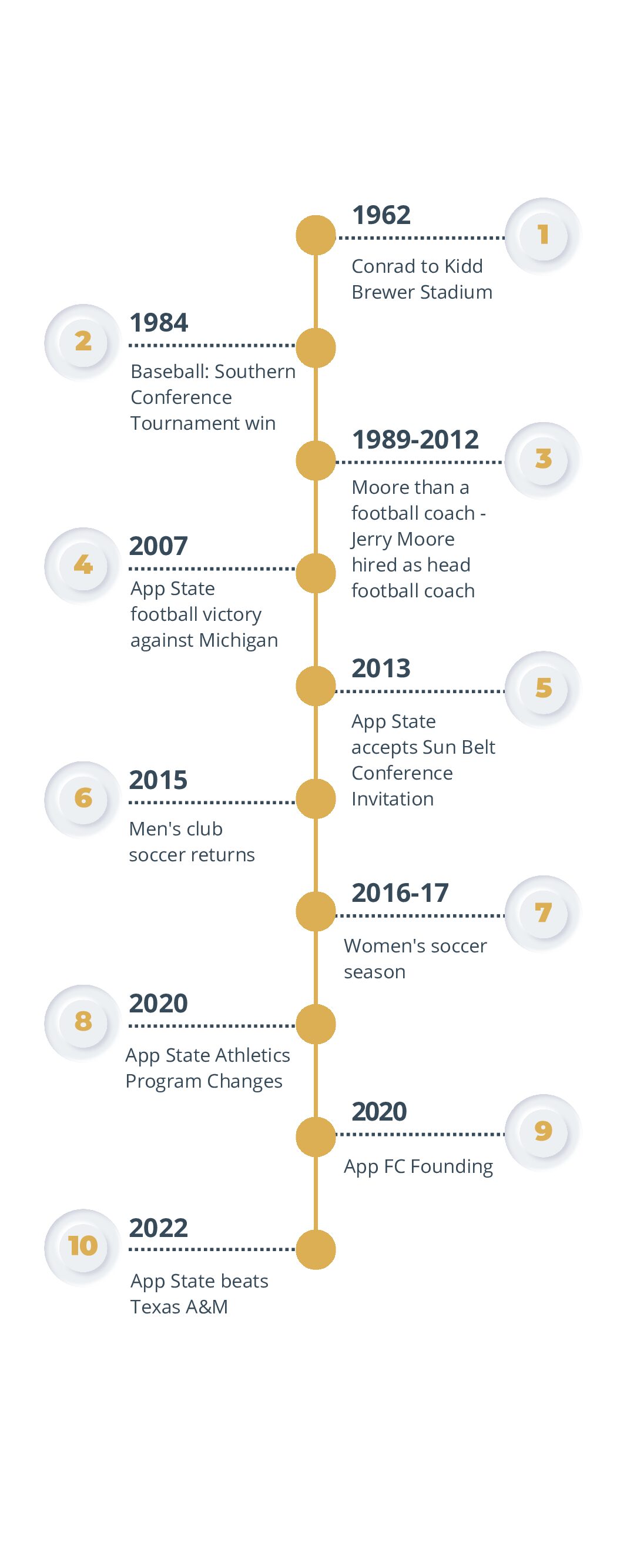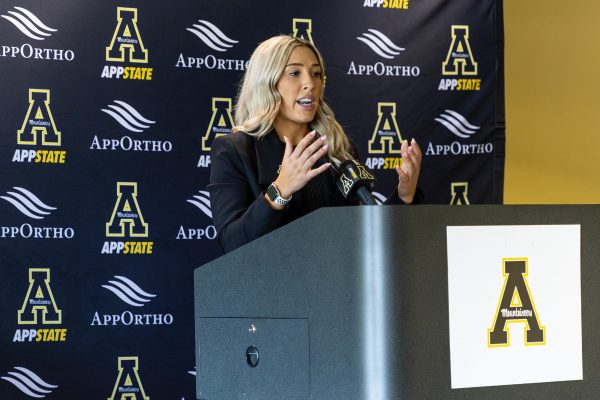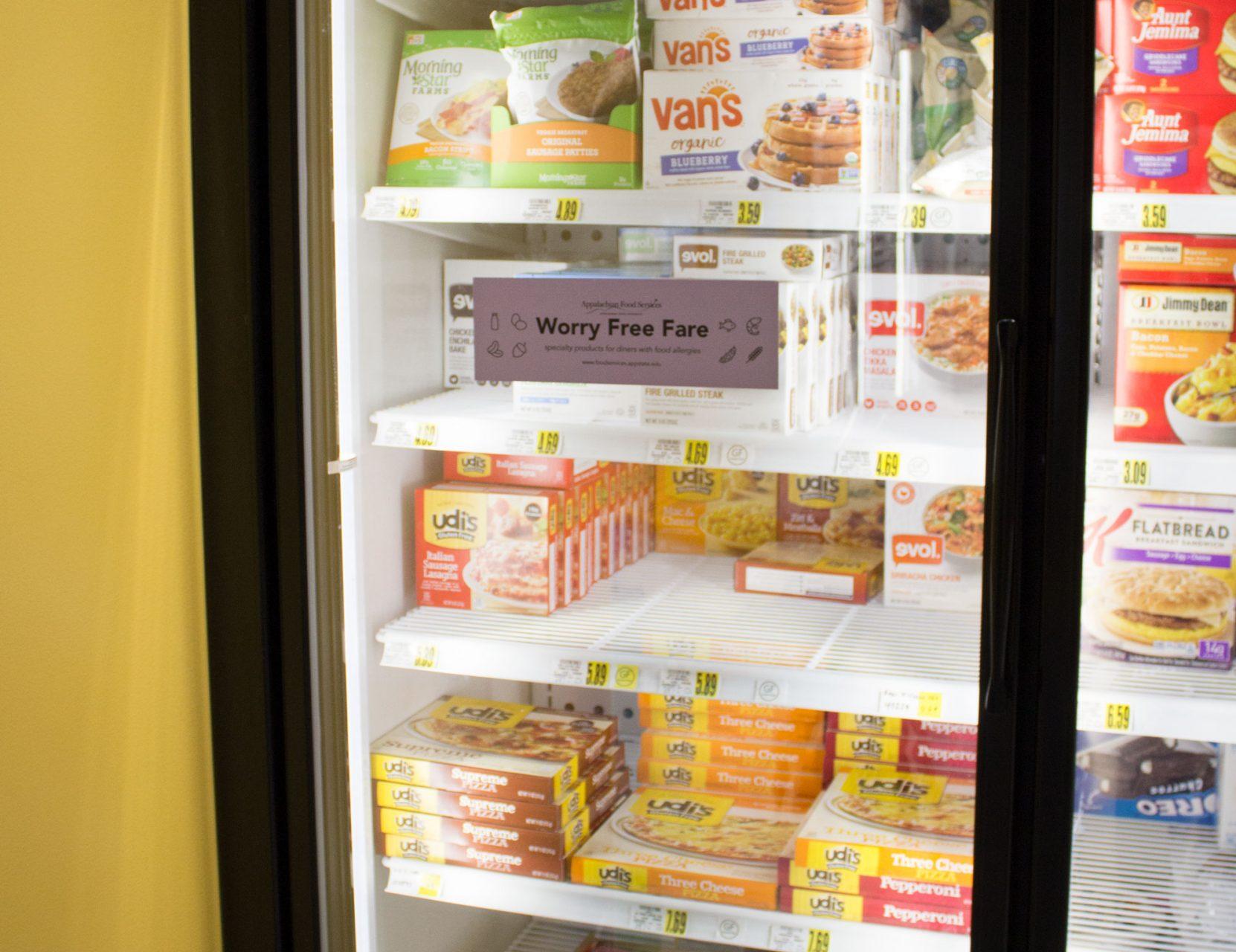According to Food Allergy Research & Education, around 15 million Americans suffer from some sort of food allergy.
Additionally, Forbes reports that around 3.1 million Americans follow a gluten-free diet.
And Vegan Bits reports that 6.48 million Americans are vegetarian, and 25 percent of those, or 1.62 million, are vegan.
Suffice to say, the amount of people in America who have limited or restricted diets is substantial.
Therefore, it is quite beneficial for students who have these diets that Food Services does a great job of accommodating their restrictions.
“Food Services’ mission is to serve the campus community, especially students.” Pam Cline, director of Food Services, said. “Making sure students with restricted diets are provided healthy and affordable options are a key part of that mission.”
The department does this through the implementation of a variety initiatives and by offering a bevy of resources.
One only has to go to the Food Services website in order to see this.
Under the nutrition resources tab, one of the first things that students see is the links that send them to specific pages with information regarding food allergies, franchise nutritional information, gluten-friendly resources, and vegetarian and vegan dining.
Furthermore, if one scrolls down the page they are greeted with the MyNutrition section. This sends people to the MyNutrition online tool, which allows them to pick and choose which foods on campus that they would like to include in their diets around any restrictions or preferences that they may have.
The page also provides a variety of links to outside sources that will help them build diets, even if they are dining off campus.
If students are having trouble building a diet that will fit their limited or restricted needs or preferences, then Food Services also offers the service of an on-staff registered dietitian.
As for the food options and alternatives provided on campus, Food Services offers a variety of options for students both in the dining halls and in the markets.
In each they have dedicated alternatives, such as the worry-free fair fridge for those who eat gluten-free, vegetarian and vegan options, and students with allergies are able to pick and choose foods that will not trigger their allergies because of the a la carte system.
Food Services also makes sure to offer a variety of regular, non-allergenic foods that students are able to take advantage of.
Additionally, if students feel that Food Services could offer more then they are always welcome to approach the department.
According to Cline, Food Services determines what to offer based on how students spend their money, yearly benchmark surveys and conversations with students.
“A perfect example of how these three resources work together is the tofu scramble available at breakfast in Rivers Street Café.” Cline said. “A student emailed us asking if the tofu scramble was something we would try. We considered her request and found that we had the ingredients already, so there would not be an added cost of acquiring a new product from our distributor, and we could make and serve it in conjunction with the pre-existing breakfast items. At first we tried having a full pan on the line, but we were not selling a full pan’s worth every morning. So, we moved it to a half pan, which met the demand. Tofu scramble is now a successful daily menu item.”
It is very apparent that the individuals running Food Services care deeply about making sure that students with limited or restricted diets are accommodated.
They offer a wide variety of options and resources for students with these diets, and they do their best to keep up-to-date with their needs.
So in conclusion, Food Services is doing a fantastic job.
Q Russell is a junior journalism major from Charlotte, North Carolina. You can follow him on Twitter at @Q_M_Russell
Photo by: Lynette Files, Intern Photographer












